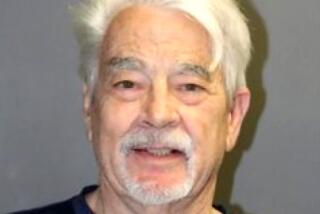SCIENCE / MEDICINE : Medical School Malady: Systematic Abuse of Students
- Share via
“Can I abuse you?”
These were the first words spoken to me by my house officer--the intern supervising my hospital training during a key part of my third year of medical school. (I was a few years older, and she was quite attractive, but here there was no hint of sexual innuendo.) The “abuse” that day was typical medical-student “scut-work”: drawing blood, replacing intravenous lines, chasing around the hospital with various samples and fluids.
So far, so good. All this was part of my education--it’s what medical students do to earn their stripes, a quid pro quo for knowledge gained, a honing of skills, a way of feeling not quite so useless--or worse, burdensome--in the dramatic and fast-moving hospital setting. I accepted it. I even felt happy that she could joke over the word abuse, thinking that this meant that no real abuse would occur.
How wrong I was. For some reason she had it in for me. She routinely kept me up after all my work was completed--at 3 or 4 in the morning, on call nights--just to make irrelevant comments on my hospital notes, which for eight months other house officers had found excellent. She humiliated me one morning because I had respectfully asked a senior physician to help me understand better why one of the patients had unexpectedly died; claiming that my question implied a criticism of the doctor’s competence (untrue), she read me the riot act in the middle of a busy nursing station.
In the worst episode, she ordered me to administer intravenous Adriamycin--a powerful and toxic anti-cancer drug--to a man with lung cancer, claiming that we had “talked about” the procedure. Even if true (it wasn’t), I--a third-year medical student--had no business doing the injection on the basis of a talk; fortunately an alert nurse stopped me from making a bad mistake. My intern yelled at me on the phone, then came down herself, yelled at me some more, and did the injection herself; incompletely, it turned out, since the man suffered serious damage to his arm from leakage of the drug.
She was not unique. I once saw a new intern subjected to such relentless verbal abuse, during a gallbladder operation by a senior house officer, that the intern cut an artery and endangered the patient’s life. Since the same intern was perfectly calm and competent with other teachers in the operating room, it was clear to me that the abuser was to blame, not the hapless underling anxiously holding the knife.
Fortunately, right around the same time I was having these dismal experiences, the first serious studies of verbal and other abuse of medical students were getting under way. Two more recent studies published in the Journal of the American Medical Assn. provide evidence that what I experienced is more the rule than the exception, and its consequences may affect everyone who ever sees a doctor.
One study surveyed a third-year medical school class (the first year of hospital training). Of the 75 students responding to the questionnaire, 85% reported widespread verbal abuse, 47% psychological mistreatment such as unfair threats, 44% exposure to unnecessary medical risk and 16% physical abuse. Sixty-seven percent felt that these experiences had adversely affected their emotional health, and 37% had considered dropping out of medicine as a result. Sexual harassment of women was extremely common (sexist slurs, 81%, sexual advances, 55%) but harassment in general cut across lines of sex, age and race. One male student stated that he had been kicked in the groin by an attending physician and required medical attention for this injury.
The second study, led by Henry Silver, a University of Colorado physician who pioneered such research in the early ‘80s, surveyed students at all four year-levels of a different medical school. The findings of this independent study were remarkably similar to the first, conducted under the auspices of the American Medical Assn. By the senior year, 80% of students reported having been abused in one way or another, and of those two-thirds found the episode of “major importance and very upsetting.” One-sixth felt the episode would always affect them.
Silver has also contributed an interesting analogy: Just as abused children often grow up to abuse their own children--and other people generally--so medical students become house officers who abuse up-and-coming medical students--and, frequently, patients.
Medical students are not children, and they are not especially vulnerable--they have been through tough premedical training. Nevertheless they can be damaged.
I personally place more emphasis on the structure of training programs for house officers.
People like my intern are under so much stress--sleeplessness, too many patients, information overload, humiliation by their superiors--that they become hard and bitter and pass on the stress. Current reforms in the scheduling of house officer training will, I predict, do more to reduce abuse of medical students than any change within medical school itself.






